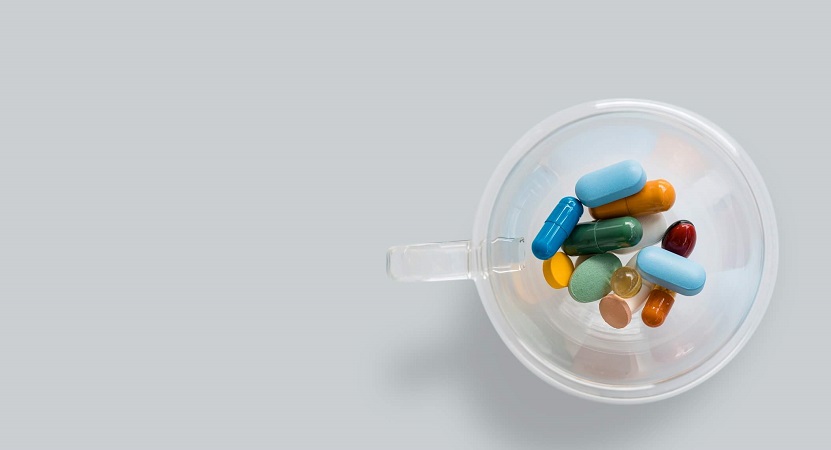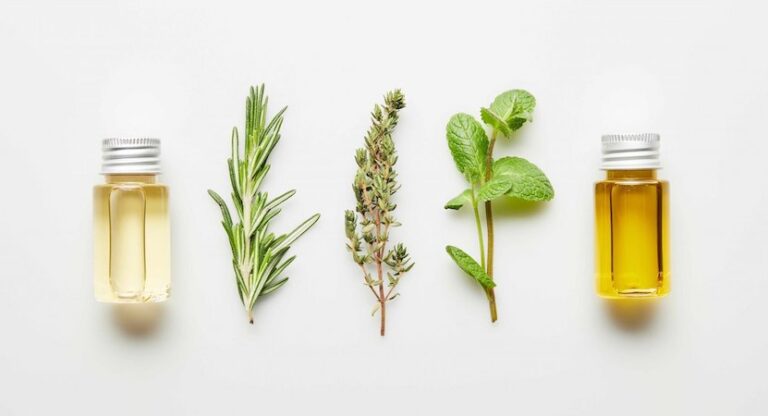Since the skin is a living entity all on its own, it needs just as much nutrient care as any other organ in the body. Here’s where vitamins and supplements come in — and some are notably better for skin than others!
In this article we discuss the following:
- What Vitamins are Good for Skin
- What Supplements are Good for Skin?
- Vitamins for Skin
- Best Vitamins for Skin
- Best Supplements for Skin
What Vitamins are Good for Skin
Choosing nutrients for skin can be more overwhelming than a buffet dinner. The options are endless, and for every problem there seems to be at least ten different solutions. So where does one begin?
For starters, it helps to have an objective in mind for what it is you envision for your skin, particularly in the face, neck and chest region (as these are areas that are most interacted with in the outside world). Do you desire more elasticity? Less dryness? Scar reduction?
Get specific, and from there it becomes a lot easier to narrow down the best possible vitamin and supplement cocktail. Here are a few to ponder on your journey:
Collagen for Skin
Collagen has become a household mention following the boom of the health and wellness industry. It’s proven to be an integral part of skin nutrition, not only for humans but in animals too.
Jake Dickson, personal trainer and wellness journalist, told us that if improving skin dryness and combating wrinkles is your goal, collagen peptides are one of the best supplements on the market. “Not only is it rich in proteins, but it also contributes to healthy joints. Collagen peptides can be consumed in a few ways-liquid, powders, or chewable. You can also nourish your body with additional nutrients by adding them to a smoothie.”
What are the Side Effects of Taking Collagen?
The known side effects of taking collagen are mild and go largely unnoticed. One might experience subtle hints of heartburn (which can become more severe over time), as well as the feeling of being “full” when not having consumed anything.
Bloating has sometimes been reported in conjunction with taking collagen. This is usually a sign of taking a bit too much for your body’s daily needs, and can usually be rectified by simply cutting down on your consumption.
Other than the aforementioned concerns, collagen is considered extremely safe and nontoxic to humans.
Can you Rebuild Collagen in Your Skin?
The big question when it comes to taking supplements for better skin, is whether they can actually help to rebuild collagen in the skin or not. For answers, we turned to Ana Reisdorf from Wellness Verge, who helped shed some light on the matter.
“Collagen is the structural protein of skin, but it starts to break down after the age of 30 leading to wrinkles and dryness. Taking collagen peptides daily (which can be easily added to any beverage) is a great way to help maintain your skin’s collagen.”
She went on to explain that collagen also works together with vitamin C. “Some products contain vitamin C in addition to collagen, but you can also take a separate supplement. Vitamin C is also a powerful antioxidant that helps protect the skin from sun damage, which can also make wrinkles worse.”
Vitamin A for Skin
Jeff Hong, a Registered Dietitian Nutritionist RDN, is passionate about vitamins for healthy skin, particularly vitamin A. “Vitamin A is a fat-soluble vitamin present in many foods. It plays a large role in our skin’s complexion by repairing skin cells, producing enzymes that stabilize the production of collagen and helping our skin stay moist.”
Hong tells us that if you are low on vitamin A you may notice your skin becoming dry and flaky, and that vitamin A also works as an antioxidant in your body, helping fight free radical damage.
“Look for orange fruits and vegetables to get the Vitamin A your body needs. Vitamin A can be found in cantaloupe, mangoes, squash, sweet potatoes and in liver and other green leafy vegetables,” says Hong.
Vitamin K for Skin
Vitamin K isn’t one that comes up too often, so we turned to Mindy Weisman, a registered dietician and functional nutritionist, for a professional breakdown. “In short, when it comes to fighting stretch marks, spider veins, scars or even dark spots, vitamin K is essential to prevent and help these skin conditions.”
Mindy made an important point to note when looking to purchase: Vitamin K comes in cream form instead of pills like other vitamins.
What does Vitamin K do for Your Skin
Basically, when we become invested in the collagen of our body (production thereof), it’s expected that collagen levels will begin to increase over time. When this happens, it’s no good to just go about life as usual, expecting the new collagen to last forever. One needs to take active measures to protect the collagen.
This is where vitamin K comes in, and why it is one of the best vitamins for skin elasticity. Vitamin K helps to protect and maintain existing collagen, helping it to enjoy a longer lifespan and in turn working to reduce wrinkles and fine lines.
Vitamin K Oil for Skin
As Mindy mentioned earlier, vitamin K is the one supplement that is not consumed orally, but is rather available as topical treatment in the form of creams and oils. As far as we’re concerned, vitamin K is a great oil to have around the house. Apply it for collagen support, wound healing and even to fade under eye circles!
Vitamin C for Skin
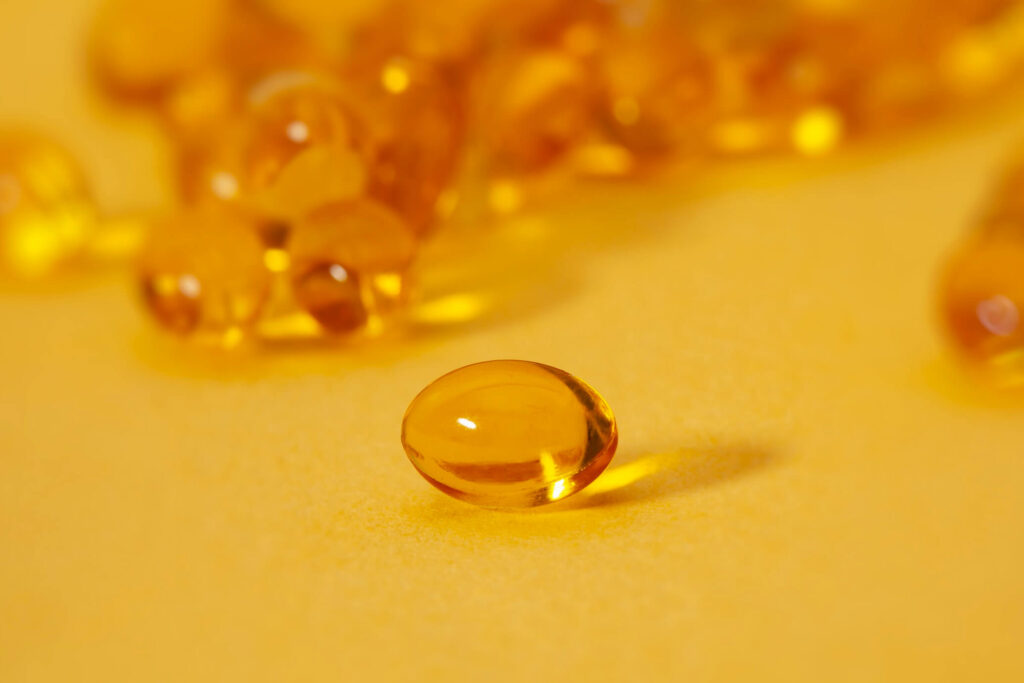
No one knows vitamin C quite like natural health, wellbeing & skincare expert Sally Moores from The Happy Sage. “The best vitamins for skin health and supplement mix that you can take to improve skin health and appearance is vitamin C and collagen.”
Sally tells us how vitamin C helps the body absorb iron, preventing anemia and keeping skin a healthy pink color. It is also required for skin healing and, as it is water soluble, needs to be replaced on a daily basis. “Vitamin C also boosts the production of collagen in the skin,” she adds.
Her recommendation is to take a food state vitamin C which will be easy to use by the body and is nutrient dense. Sally then recommends one use of hydrolysed marine collagen where the collagen has been broken down into a form that is easily absorbed by the body.
Vitamin E vs Vitamin C for Skin
The showdown between these two vitamins for skin care is one that has much of the wellness world in constant debate. All you really need to know is that vitamin C is an antioxidant, and it works to slow the rate and intensity of damage to collagen via free-radicals, which usually leads to dry skin, fine lines and wrinkles. Vitamin E is also an antioxidant, but its function is to repair and protect. This means that it can help prevent premature aging of your skin and damage to your natural DNA.
It then goes without saying that using the two in conjunction makes for a match made in heaven. A dynamic duo for the ultimate war on skin deterioration.
What Supplements are Good for Skin?
Supplements for Skin
Taking supplements is a sure way of supporting your skin no matter what may be going on in your life. It’s a daily act of kindness, you could say, that tells your body “I am here for you. I see your needs. I intend to nourish you.”
The list of supplements one can take for skin support is endless. These days, just about every vitamin, herb, plant, seed and vegetable has been made into a supplement-suitable version for everyday convenience. Some even argue that the industry has taken it too far in some instances, eliminating the need to consume real nutrients at their source since they can now simply be swallowed as pills.
Supplements for Dry Skin
Supplementing can be a great way of treating dry skin from the inside out. Andrea Rawls, a writer at Spotlight on Skincare, has been researching this phenomenon for quite some time. “The most important supplements that I recommend for dry skin are hyaluronic acid and Omega 3’s. Hyaluronic acid is often applied topically and can be found in serums, moisturizers and masks. It’s effective at helping the skin retain moisture, which reduces the appearance of wrinkles and helps skin look plump.”
Andrea goes on to explain that many people don’t realize you can also take hyaluronic acid orally. “It can be found at most drugstores and is very inexpensive. 120 mg of hyaluronic acid taken once a day helped my skin stay hydrated all winter!”
As for omega 3’s, these are another great supplement for skin. “Omega 3’s are a type of fatty acid and fatty acids are a significant component of our skin. Not only do they help keep our skin barrier strong, but they also reduce inflammation, leaving skin looking smooth and healthy, “ says Rawls.
Supplements for Acne Prone Skin
We then find ourselves facing another skin phenomenon; the ever-present problem that is acne. Joey Baldonado took an in-depth look at this skin problem, particularly when it comes to supplementing as a potential solution. “Acne pills can work, yes, but it largely depends on the person’s skin, body, and nutritional needs. As is the case with most, if not all, medication out there, acne pills have side effects as well. Some of the common side effects can include dizziness, an upset stomach, lightheadedness, dry or flaky skin, irritated skin, weight gain, and increased sensitivity to the sun.”
He adds that the aforementioned effects apply to both oral and topical medications. “It’s worth noting that the common side effects are only temporary and will pass over time. However, if the experience persists, it’s best to consult your dermatologist,” says Joey.
Skin Elasticity Supplements
Skin pills for increased elasticity — what a dream! One of the major influences on the loss of skin elasticity happens to be a magnesium deficiency, and most people will go all their lives without even knowing this.
Luckily Natalie Jurado, founder of Rooted In, has known this for a while and is shedding light on the subject for the benefit of all. “Our bodies need magnesium to function properly, but despite this, up to 70% of people don’t get the minimum amount needed every day and wind up severely deficient, according to the National Institute of Health. Magnesium deficiency results in lower levels of fatty acids on the skin. This reduces elasticity and moisture, creates dryness, wrinkles and lack of tone.”
Jurado adds that, most importantly, magnesium impacts glutathione production. “This is one of the most important and powerful antioxidants and has incredible anti-aging properties. Low magnesium levels have been shown to double the number of free radicals being formed and to dramatically lower cell glutathione levels.”
Foods that are rich in magnesium include pumpkin seeds, dark chocolate, leafy greens and almonds. Combining these foods in a smoothie provides an excellent source of magnesium. “Be aware though that chocolate does contain caffeine so use it sparingly in the evening,” warns Natalie.
Vitamins for Skin
Vitamins for Dry Skin
To address the burning question of what vitamin is good for dry skin, Conor O’Flynn from O’Flynn Medical came to the rescue. “If you have very dry skin it could be caused by a mineral or vitamin deficiency, most commonly Vitamin C and D can help with this issue.”
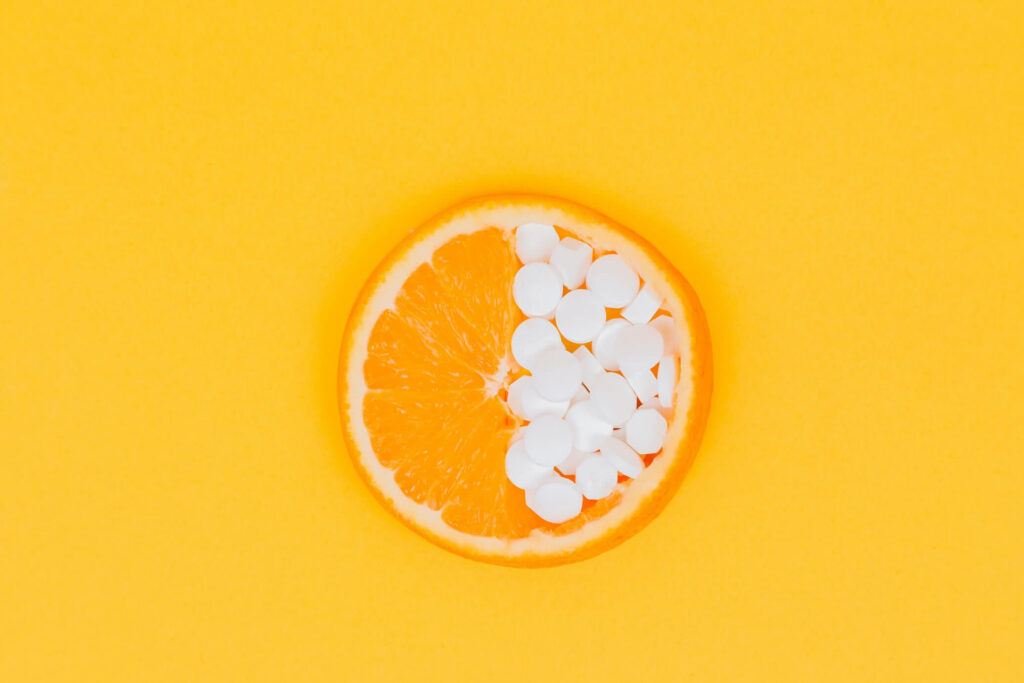
Mindy Weisman, who we heard from earlier, had something to add with regards to both of these vitamins suggested by Conor. “Vitamin D is the most widely used vitamin for skin as it is made when sunlight is absorbed by your skin. Vitamin D plays an important role in skin tone and helps create healthy skin cells in your body.”
As for vitamin C, Mindy regards this as another popular vitamin that is incredibly good for your skin. “Vitamin C actually enhances the effectiveness of sunscreens and helps protect your skin from the sun. This vitamin has cancer fighting properties and helps generate collagen, which keeps your skin healthy.”
Vitamins for Skin Repair
As the founder of Beauty Ritual Skincare and It’s A Beauty Ritual, registered nurse as well as a licensed aesthetician, Rachel File is a skincare and wellness powerhouse. Repairing skin is something she knows like the back of her hand, and one of her most recommended solutions is that of vitamin E.
“Our skin’s most important role is to protect our body from environmental stressors. Impaired nutrition can result in a compromised skin barrier, which is why the intake of vitamins and minerals rich in antioxidants are vital to maintain healthful skin.”, says Rachel.
This is where striving for repair comes in. “Vitamin E is a powerful fat-soluble antioxidant that can also be found in nuts, spinach, whole grains and olive oil. Vitamin E plays a role in protecting the skin from environmental stress. Minerals to support against UV injury to the skin are selenium and glutathione work hand in hand to protect against UV damage as well.”
Vitamins for Skin Healing
When it comes to blemishes and scars, it’s only a very small portion of the world who don’t ponder some sort of healing or total resolve as they move through life. The beauty industry has made us all strive for flawless skin, so healing ailments is something that a lot more people are interested in these days.
Earlier we spoke with Max Whiteside. He had something to add when it comes to skin healing in particular, noting an unlikely solution. “Up your omega 3s intake by adding fish oil into your vitamin regimen. Fish oil is excellent for soft skin, hydrating skin, fighting inflammation, promoting skin healing, and reducing hyperpigmentation.”
Good to know, thanks Max!
Vitamins for Glowing Skin
When it comes to that natural glow, there is no vitamin better than that of vitamin C. But don’t take it from us, rather take the words of Dr. Carrie Lam herself, an undeniable expert in the field.
“Vitamin C is one of the safest and most effective nutrients to be used as a vitamin for skin health. The benefits of vitamin C may include protecting against immune system deficiencies, cardiovascular disease, prenatal health problems, eye disease, and skin wrinkling and aging.
It has been found that a higher vitamin C intake correlates with a lower likelihood of wrinkles and dryness of the skin. It is a great youthful aging tool for a better, glowing appearance.”
Dr. Lam goes on to tell us how higher levels of vitamin C found in the blood may be considered a nutritional marker for overall health. A cup of orange juice or a half-cup of red pepper is enough to meet your daily recommended dose of vitamin C. “Some additional sources include cantaloupe, broccoli, red cabbage, green pepper, kiwi, and tomato juice. Vitamin C is not stored in the body, and any excess amounts are excreted, so overdose is not a concern. However, exceeding 2,000 milligrams at once can result in stomach upset and diarrhea.”
Vitamins for Clear Skin
Dr. Lam is also quite the advocate for vitamin A when it comes to any journey toward clear skin. “Vitamin A is required for the proper development of many parts of the body, including the eyes, skin, and immune system. Vitamin A is applied directly to the skin to improve wound healing, reduce wrinkles, and to protect the skin against UV radiation. It can also be made synthetically in a laboratory.”
She goes on to share that foods high in vitamin A include sweet potatoes, carrots, dark leafy greens, winter squashes, lettuce, dried apricots, cantaloupe, bell peppers, fish, liver, eggs, whole milk, butter, and tropical fruits.
“The current daily value for vitamin A is 5,000 international units (IU). Overconsumption of vitamin A can also be harmful. Too much vitamin A can lead to jaundice, nausea, loss of appetite, irritability, vomiting, and even hair loss,” says Dr. Lam.
Vitamins for Skin Whitening
Interestingly, vitamin C is also known as one of the best substances for the purpose of skin whitening. This is largely thanks to the way the vitamin promotes the regeneration of new collagen, which tends to mean sun damage or dark marks are totally eradicated.
Rachel File had more to add on this subject, stating that environmental stressors such as excessive sun damage depletes vitamin C in the epidermis. “It has been shown that photodamaged skin has lower levels of vitamin C. Supplementation through oral and topical vitamin C has shown promise in maintaining healthy skin.”
Vitamins for Sagging Skin
When skin starts to sag, it generally means that there is a lot of deficiency going on at a vitamin and mineral level. Adams Chimera is the founder of Root’d, and later we’ll take a closer look at their dynamic supplement.
“Biotin is probably the best-known vitamin to help with hair/skin health, but the truth is, a full spectrum of vitamins including vitamin A, vitamin D, vitamin E, and B vitamins are needed to truly impact skin health, as each vitamin plays an important role in skin cell growth and differentiation,” says Adams.
Want to know the best of the best vitamins that are out there? Read on!
Best Vitamins for Skin
Best Vitamins for Clear Skin
Nature Made Vitamin A
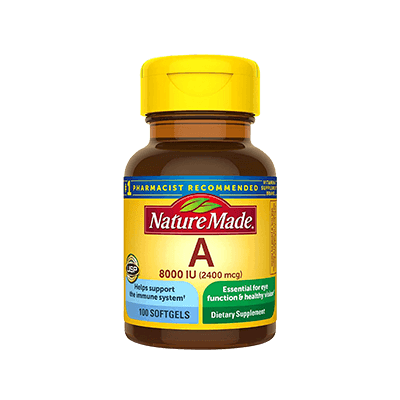
As we found out earlier, vitamin A is an essential component to anyone who is moving toward clearer skin, be that for the treatment of acne, inflammation or general ailments. While we could recommend one of hundreds of expensive vitamin A supplements on the market, there is really no need when Nature Made’s version is so readily available.
Their soft gel capsules contain only vitamin A palmitate from fish oil and soybean oil (purely to boost absorption). Preservative and gluten free, this supplement is all you really need to facilitate your newfound clear skin ritual.
Affordable and available worldwide, Nature Made’s vitamin A provides 267% of the DV for vitamin A per serving, making it one of the best vitamins for clear skin complexion.
Best Vitamin E Supplement for Skin
OLLY The Perfect Women’s Multi Vitamin
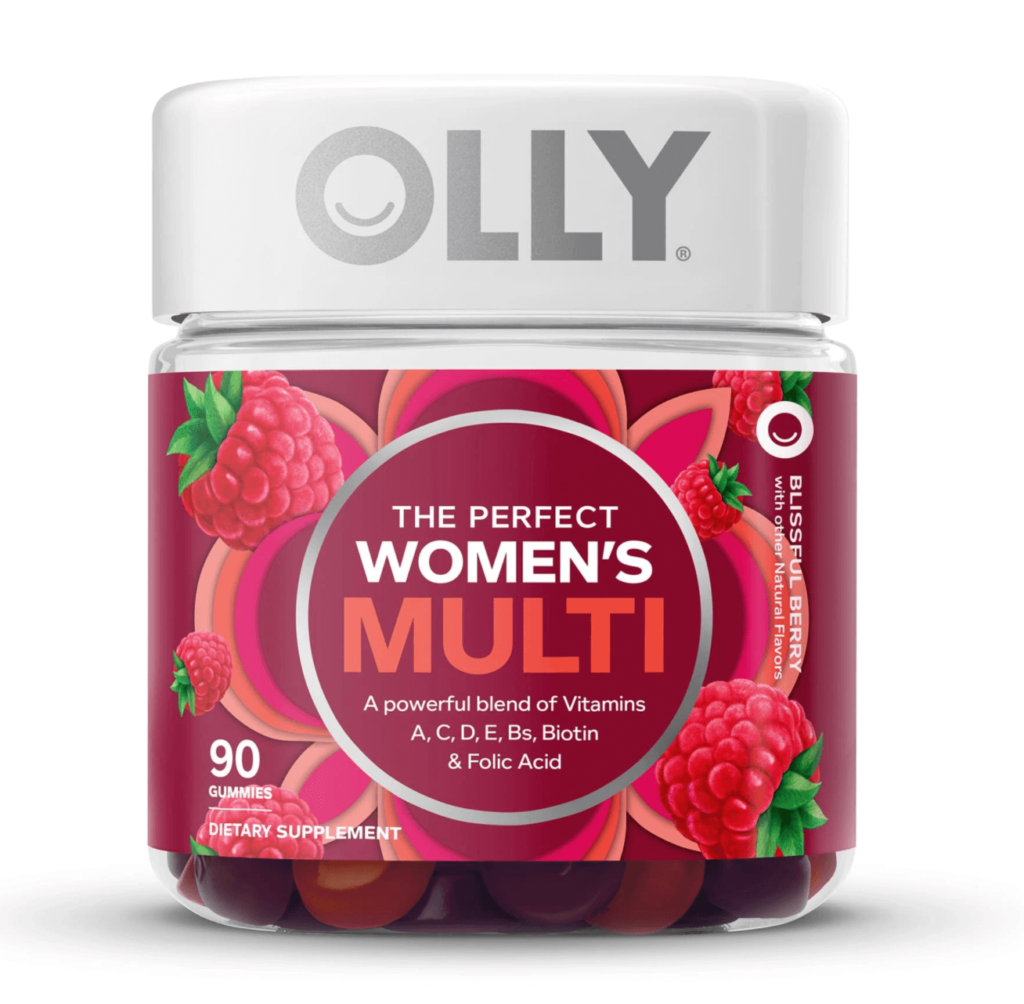
As we know, vitamin E is one of those good vitamins for skin that everyone should essentially be supplementing on a daily basis. For a recap, Rachel File offered some additional insight: “Vitamin E is another powerful fat-soluble antioxidant that can also be found in nuts, spinach, whole grains and olive oil. Vitamin E plays a role in protecting the skin from environmental stress.”
Okay, so OLLY isn’t straight vitamin E, but as we’ve come to learn, this vitamin is more effective when taken alongside other important minerals. OLLY’s daily multivitamin for women contains a strong amount of vitamin E alongside vitamins A, C, D, biotin and folic acid. What’s more, the blissful berry flavor makes for a daily treat you didn’t know you needed!
Best Vitamins for Dry Skin
The Real Thing Nutra-C
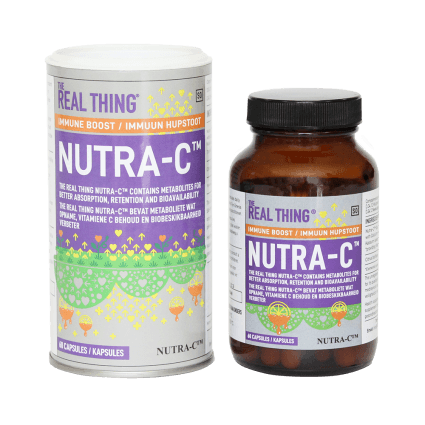
We’ve had our eye on The Real Thing vitamin supplements for quite some time, and took some time to try out their Nutra-C capsules for the purpose of correcting some seriously dry skin. The results speak for themselves, and we’d confidently recommend this proudly South African product to anyone who wants a no-nonsense product that actually does what it claims to.
Packed with the vitamin power of a truck load of citrus fruits, and including vitamin C as calcium ascorbate and magnesium ascorbate, these capsules are easy on the gut and even better on the immune system.
Best Vitamins for Skin Elasticity
Revly Vegan Hair, Skin, & Nails Complex
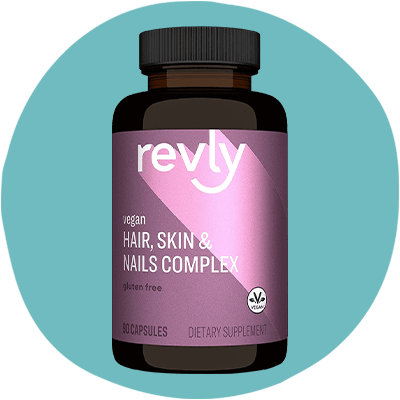
If it’s elasticity you want, it’s a multivitamin you need! Look no further than Revly’s vegan solution for hair, skin and nails. This combination vitamin has blown us away in just about all areas: price, result and quality!
Backed by the leaders in skincare science, the capsules contain methylsulfonylmethane (MSM), which is thought to greatly improve the hydration and elasticity of skin. Combined with an Ayurvedic approach, the product also contains gotu kola.
Gotu kola is proven to hold potent antioxidant properties, and can help reduce the appearance of stretch marks (which as we know, as the result of a lack of skin elasticity).
Best Vitamins for Skin Healing
Care of Fish Oil Wild at Heart
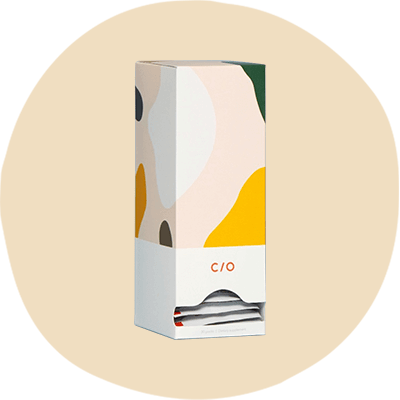
Let us not forget our earlier conversation with Max Whiteside, in which we were alerted to the importance of fish oil for skin healing! This particular brand of fish oil will cost you a pretty penny, but one can never be too careful when it comes to these supplements due to the risk of mercury poisoning that exists widely within this sector.
Fish Oil Wild at Heart contains salmon oil that is sustainably sourced from wild Alaskan salmon and further processed through cold press extraction. Salmon oil contains important omega-3 fatty acids, DHA and also EPA. When it comes to vitamins to improve skin, it doesn’t get more natural than this.
Best Supplements for Skin
Best Supplements for Glowing Skin
Vital Enzymes
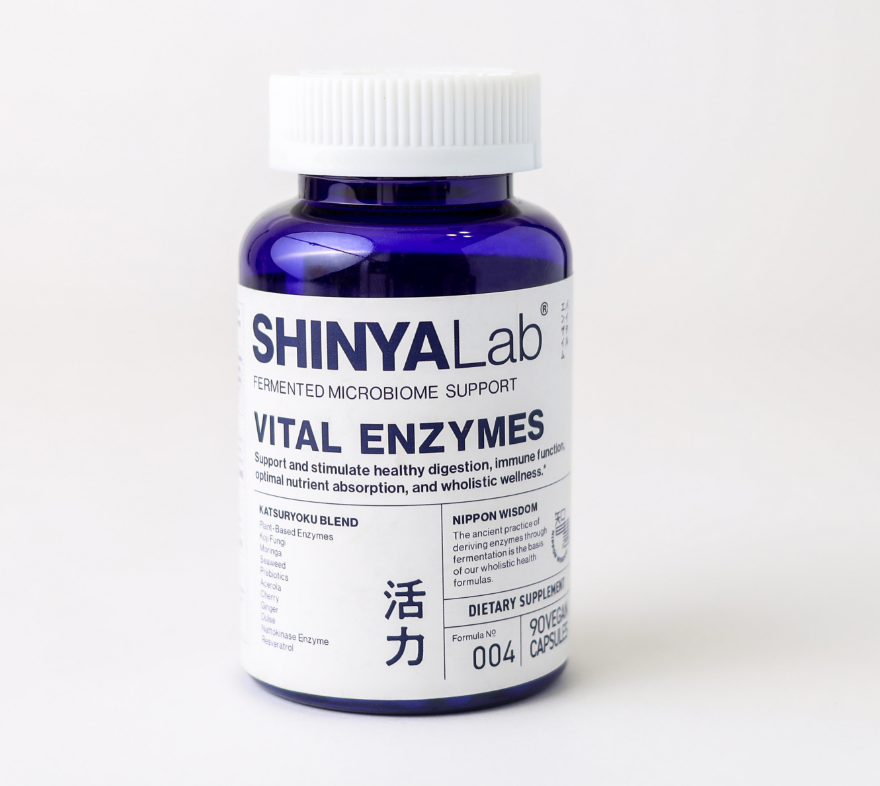
So you want your skin to really glow? Unsurprisingly, it’s Japanese skincare that holds all the secrets in this regard. Darci Eckermann is from Shinyalab Japanese Botanicals; a line of supplements (Shinyalab) developed by Dr. Shinya, a world renowned Gastroenterologist.
Darci shares the all important notion that skin health ultimately starts with gut health. “Good health is truly related to enzymes. Enzymes allow our bodies to function properly and reap the benefits of what we consume. Taking an enzyme supplement is like an insurance policy on digestion, which in turn supports healthy skin.”
“When taking an enzyme supplement it’s important to focus on the quality and activity of the enzymes. Koji yeast culture, a key ingredient in Vital Enzymes by ShinyaLab, contains abundant probiotics and beta-glucan, which exert positive effects on the skin and intestinal microbial flora,” adds Darci.
Support and stimulate healthy digestion, optimal nutrient absorption, and support skin health with Vital Enzymes — we’re sold!
Best Supplements for Skin Anti-Aging
Root’d Powder MULTIvitamin + Electrolytes For Women
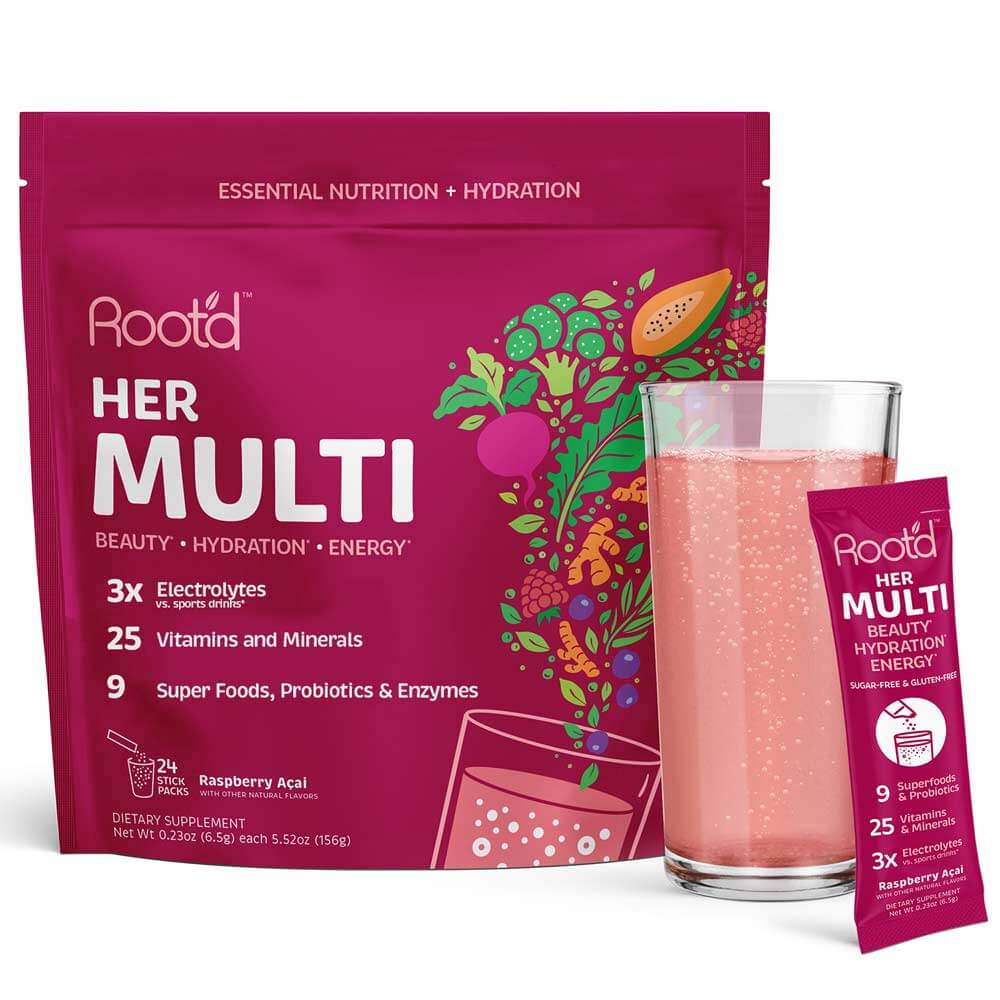
Adams Chimera is the founder of Root’d, and we’re quickly falling in love with this supplement for women around the world. “Biotin is probably the best-known vitamin to help with hair/skin health, but the truth is, a full spectrum of vitamins including vitamin A, vitamin D, vitamin E, and B vitamins are needed to truly impact skin health, as each vitamin plays an important role in skin cell growth and differentiation,” said Adams.
“On the mineral side, copper is super important. Because people have a higher chance of being deficient in copper, supplementing with it may give better results than just biotin or other vitamins alone. Copper’s main function is to help the body form red blood cells, however a direct cause and effect relationship has been established between the dietary intake of copper and the maintenance of normal connective tissues in the skin.”
Adams tells us that he made Root’d to contain all these vitamins and an array of minerals in an easy and delicious drink mix, for the sole purpose of healthier skin all round. “With added superfoods and probiotics, Root’d absorbs with the natural flow of your body, ensuring you enjoy the maximum benefit,” added Adams.
Best Supplement for Skin Elasticity
Halcyon Dermabears Vitabear Skin Vitamins
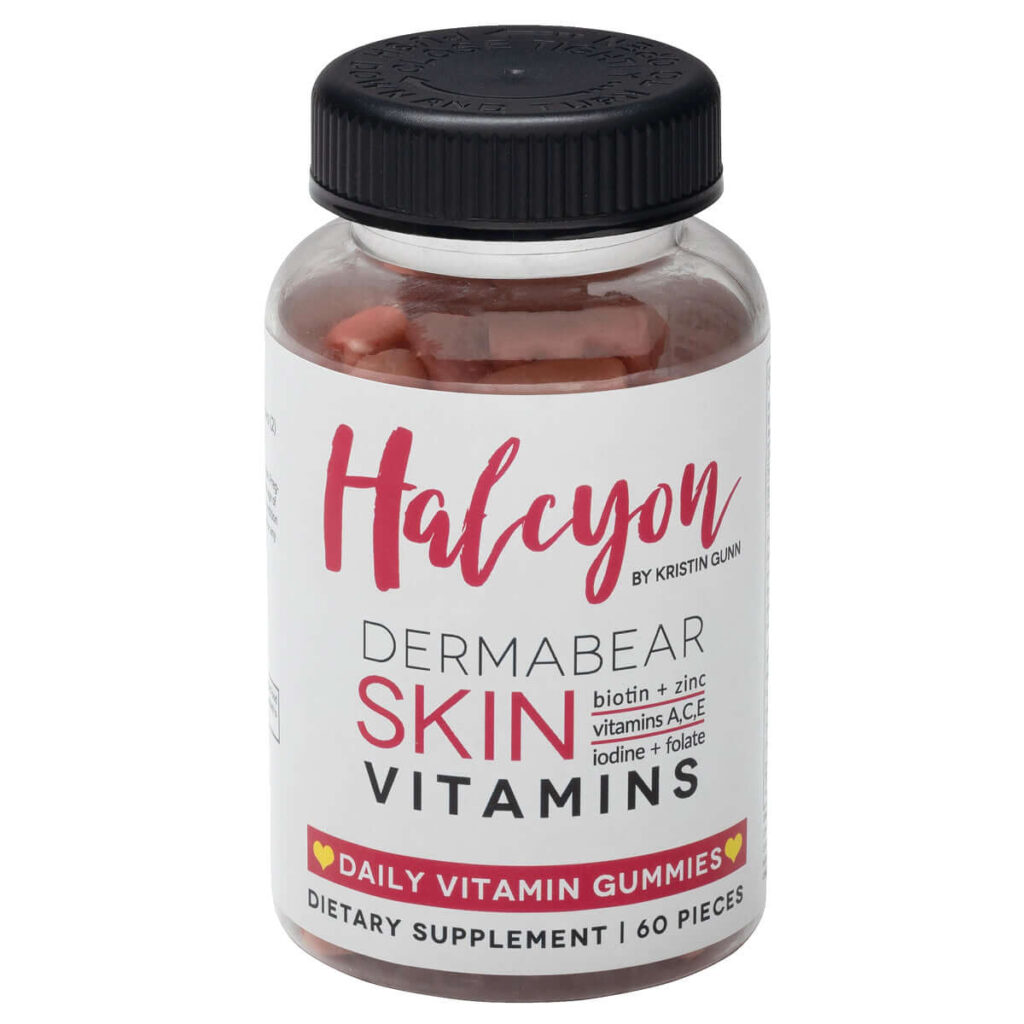
When it comes to skin elasticity, there’s no one we’d rather speak to than Kristin Gunn, celebrity esthetician licensed in Texas, New York and Colorado. She had one thing to say to us and that is: “If you’re taking supplements, skip the pure biotin. A balanced multivitamin designed specifically for skin, such as Halcyon Dermabears, can give you a boost of vitamin B5 without risking any of the potential problems of an excess dosage of one or the other.”
“When it comes to vitamins for great skin, biotin is at the top of the list. It’s great for hair, skin and nails. Biotin (which is vitamin B7) helps with the breakdown and distribution of fatty acids and improves the keratin infrastructure. This gives you both a glow and a protective layer,” says Gunn.
She adds that another skin powerhouse, vitamin B5 (pantothenic acid), helps with the regulation of the surface layer of the skin. In short, it helps prevent acne. Working together they can give you healthy looking skin with naturally more elasticity.
An important point to note for anyone who is taking biotin B7: “It is absorbed through receptors in the intestines, and so is vitamin B5. Because they are both absorbed through the same receptors, if there is an excess of one, there is a deficiency in another.” Gunn continues to explain that this means that if you’re taking biotin supplements, especially pure biotin, then you won’t be able to absorb the vitamin B5 in your diet. “This means that the surface of your skin will be more prone to breakouts. It’s not that biotin causes acne, but a deficiency in vitamin B5 will.”
You need to simply make sure that you don’t have an excess of biotin to pantothenic acid, which is where this balanced supplement by Halcyon Dermabears comes in to save the day!
Did You Enjoy This Article?
If you enjoyed this article, you might also like our articles discussing skincare such as How to Detox Skin from Inside Out, Blue Light Skin Damage and Turmeric and Skincare.

